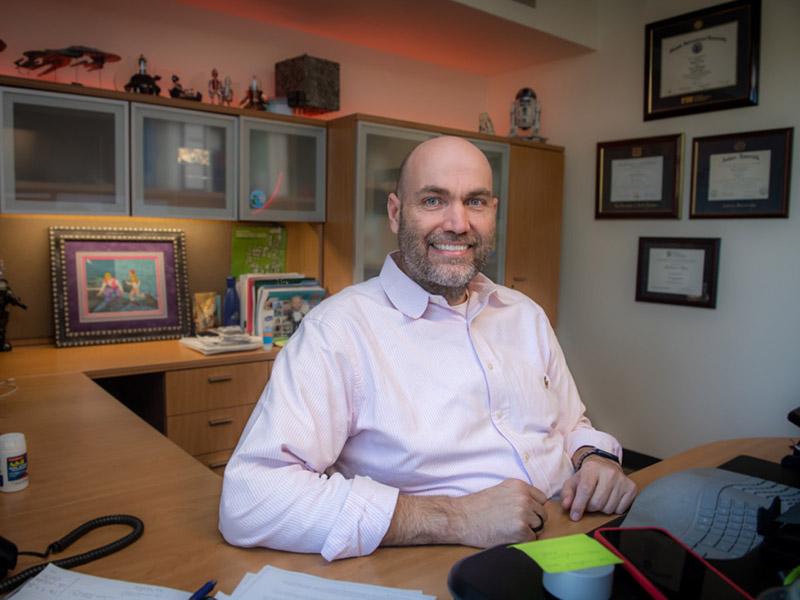National presidency allows Campus Health leader to shape conversations about college health
This month Scott Tims, Tulane’s assistant vice president for Campus Health, assumed the national presidency of the American College Health Association (ACHA), a century-old organization dedicated to the health and well-being of college students.
He began preparing for the role, as president-elect, a year ago, as COVID-19 was spreading. Even though at the time the pandemic forced most colleges to dismiss their students from campus, it reinforced the importance of the ACHA, as administrators were clamoring for health information and guidance about how to operate a university during a crisis, and how to support their own frontline workers.
“It’s been nice to be part of that conversation on what reopening guidance should look like,” Tims said. “Student health centers everywhere have struggled; they’ve all had different roles and responsibilities; they are all different sizes and shapes. We’ve spent a lot of our time talking about what it’s like to be on a campus, how do we support our member institutions during this, and how do we do that now, in the post-COVID world.”
COVID-19 is hardly a memory, but now that ACHA has put out two documents outlining reopening strategies for campuses, Tims said they are ready to resume the work they were planning before the pandemic, with the consideration that many college health programs now have more enhanced missions than they did before COVID-19.
“Part of my presidency will be helping set the strategic plan for the future, and really thinking about where does college health go next. And I’m excited about that aspect of being president — setting the course for where we need to go, and (determining) how we set ourselves up for success,” he said, adding that part of his personal mission reflects the national conversation: “a renewed emphasis on justice, equity, diversity and inclusion” for all college health workers, from physicians and nurses to front-desk staff.
In fact, reflecting on that level of diversity is both a challenge and an exciting opportunity, Tims said. Not all college health programs have access to similar resources or staffing — and are facing a variety of issues on their individual campuses. ACHA represents two- and four-year institutions of all types, so the needs are varied.
“It’s been a really good opportunity for me to bring back to Tulane, what’s happening in real time from other members,” he said.
Tims has been a member of ACHA since he joined Tulane in 2008 and since then has served ACHA on various committees and in other leadership capacities.

